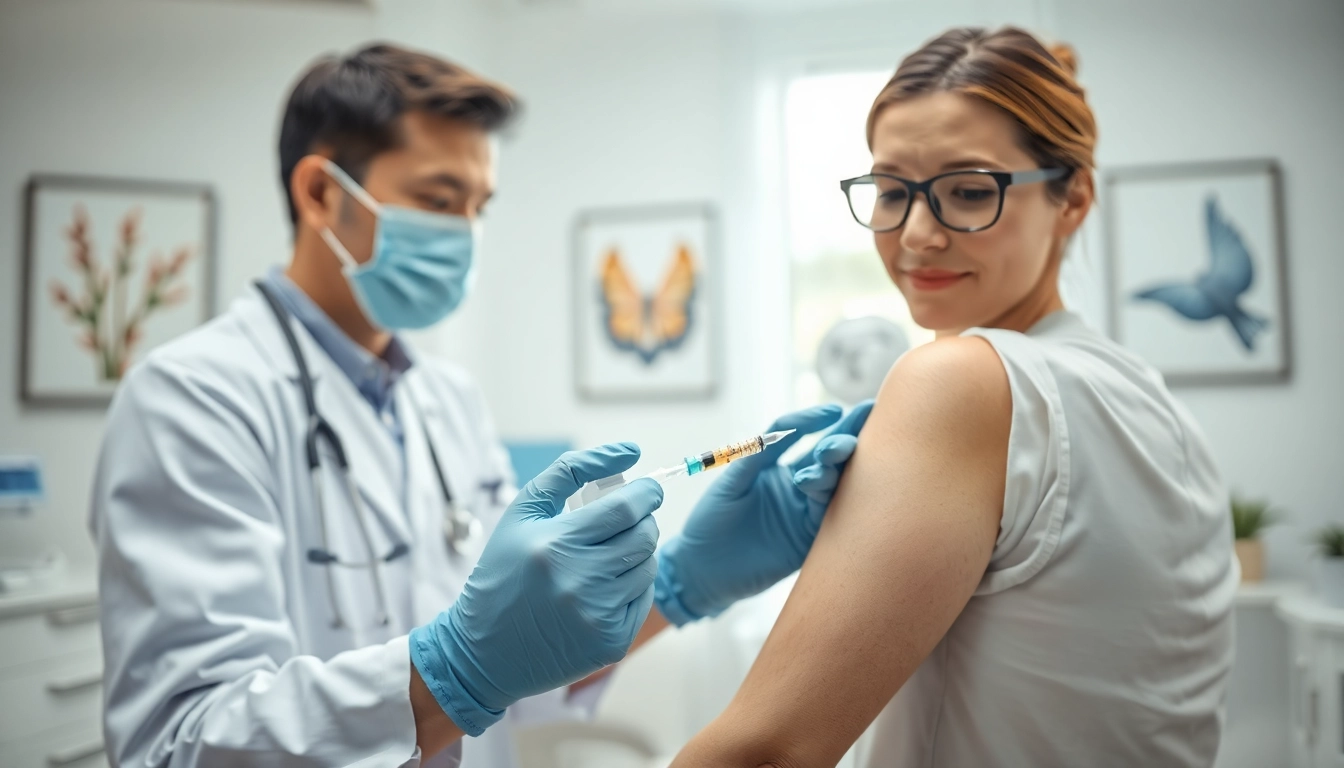Understanding Aesthetic Skin Concerns
In today’s world, where appearance often plays a significant role in self-confidence and social interactions, understanding aesthetic skin concerns is more important than ever. Aesthetic skin concerns refer to various skin conditions that primarily affect the appearance of the skin rather than its overall health. This can include issues that may not pose immediate health risks but significantly impact how individuals perceive themselves and are perceived by others. Addressing these concerns often involves a blend of preventive care, treatment options, and lifestyle choices. In this comprehensive guide, we will delve into the myriad of aesthetic skin concerns, identifying specific issues and exploring effective treatments and preventive measures.
What Are Aesthetic Skin Concerns?
Aesthetic skin concerns encompass a range of conditions such as acne, wrinkles, hyperpigmentation, and more. Each of these problems can affect individuals differently, influencing not only their physical appearance but also their emotional well-being. These concerns tend to arise from both intrinsic factors, like genetics and aging, and extrinsic factors such as sun exposure and pollution. Understanding the distinction between aesthetic skin concerns and medically critical conditions is crucial for determining the right approach to care.
Common Types of Skin Issues
Among the most common aesthetic skin concerns are:
- Acne: This can manifest as pimples, blackheads, and cysts, often leading to scarring.
- Wrinkles and fine lines: Typically associated with aging, these can detract from a youthful appearance.
- Hyperpigmentation: Patches of skin that are darker than the surrounding areas, often a result of sun damage.
- Rosacea: A chronic condition characterized by redness and visible blood vessels, leading to an uneven skin tone.
- Loose skin: Often stemming from aging or significant weight loss, leading to a sagging appearance.
Factors Contributing to Skin Problems
Numerous factors contribute to aesthetic skin concerns. Key contributors include:
- Genetics: Family history can predispose individuals to certain skin conditions.
- Sun Exposure: Ultraviolet rays can accelerate aging processes and contribute to skin cancer risk.
- Diet: Consuming a diet low in antioxidants and high in processed foods can negatively impact skin health.
- Environmental factors: Pollution and harsh weather conditions can lead to premature aging and irritation.
- Hormonal changes: Fluctuations can trigger issues like acne, particularly in teenagers and women during their menstrual cycle.
Identifying Specific Aesthetic Skin Concerns
Acne and Its Impact
Acne is one of the most prevalent skin conditions, affecting individuals of all ages but particularly teenagers and young adults. Causative factors include hormonal changes, stress, and poor diet. Beyond its physical manifestations, acne can lead to significant psychological effects, including anxiety and low self-esteem, particularly when it leads to scarring. Understanding the type of acne—whether it be hormonal, cystic, or inflammatory—is vital for effective treatment.
Signs of Aging: Wrinkles and Fine Lines
Age-related changes in the skin are natural, yet they can be distressing for many. Wrinkles and fine lines occur due to loss of collagen, skin elasticity, and the cumulative effects of sun exposure. Preventive measures can include proper hydration, sun protection, and the use of products containing retinoids or peptides.
Hyperpigmentation and Skin Tone Irregularities
Hyperpigmentation is characterized by an uneven skin tone and can be caused by sun exposure, hormonal changes, and inflammatory skin conditions. Treatment often involves a combination of topical agents that inhibit melanin production, like hydroquinone, and professional interventions, such as chemical peels or laser therapy.
Effective Treatments for Aesthetic Skin Concerns
Topical Solutions: Creams and Serums
For many aesthetic concerns, topical solutions are the first line of defense. Ingredients to look for include:
- Salicylic Acid: Effective for treating acne by unclogging pores.
- Retinoids: Promote cell turnover, reducing the appearance of fine lines and improving skin texture.
- Vitamin C: An antioxidant that helps brighten the skin and reduce pigmentation.
- Hyaluronic Acid: A hydrating agent beneficial for plumping the skin and maintaining moisture.
Professional Treatments: Laser and Chemical Peels
For more persistent aesthetic skin concerns, professional treatments may be necessary. Some of the most effective options include:
- Laser Therapy: Different types of lasers can treat various concerns, from acne scars to wrinkles.
- Chemical Peels: These can improve skin texture and tone by removing the outermost layer of dead skin cells.
- Microneedling: Involves tiny punctures in the skin to stimulate collagen production.
Home Remedies for Immediate Relief
While professional treatments can be effective, many individuals seek home remedies for immediate relief. Some useful techniques include:
- Applying aloe vera gel for its soothing and anti-inflammatory properties.
- Using honey as a natural antibacterium and moisturizer.
- Trying green tea masks to reduce redness and inflammation.
- Incorporating oatmeal masks for their exfoliating and calming effects.
Preventive Measures for Healthy Skin
Daily Skincare Routines
A well-structured skincare routine is essential for preventing aesthetic skin concerns. Here’s a basic framework:
- Cleanser: Use a gentle cleanser suited for your skin type twice daily.
- Exfoliation: Exfoliate 1-2 times a week using either physical or chemical exfoliants.
- Moisturizer: Choose a moisturizer that fits your skin type to maintain hydration.
- Eye Cream: Apply an eye cream to address puffiness and fine lines.
- Sunblock: Apply broad-spectrum sunscreen every day, even on cloudy days.
Diet and Its Role in Skin Health
Your skin is often a reflection of your diet. A balanced diet rich in fruits, vegetables, lean proteins, and healthy fats can nourish your skin and enhance its appearance. Considerations include:
- Antioxidants: Foods rich in vitamins C and E can protect the skin from oxidative stress.
- Omega-3 Fatty Acids: Found in fish, these can reduce inflammation and improve skin barrier function.
- Hydration: Drinking plenty of water helps maintain skin moisture and elasticity.
Importance of Sun Protection
Sun protection plays a pivotal role in preventing aesthetic skin concerns. Ultraviolet rays from the sun can cause premature aging, hyperpigmentation, and skin cancer. Effective sun protection strategies include:
- Applying sunscreen with an SPF of at least 30 every day.
- Wearing protective clothing, such as wide-brimmed hats and long sleeves.
- Seeking shade during peak sun hours, typically between 10 a.m. and 4 p.m.
Staying Informed: Resources and Support
Online Communities and Support Groups
For individuals dealing with aesthetic skin concerns, connecting with others can provide both emotional support and practical advice. Online communities and forums offer a wealth of knowledge, sharing personal experiences, treatment results, and tips for managing conditions.
Consulting Professionals vs. Home Treatments
While home treatments can be effective, consulting with a dermatologist or skincare professional is crucial for persistent or severe concerns. Professionals can provide tailored recommendations based on individual skin types and conditions. They also have access to the latest treatments and technologies that may not be available over-the-counter.
Latest Research in Aesthetic Dermatology
The field of aesthetic dermatology is continuously evolving, with ongoing research identifying new treatments and understanding skin behavior. Keeping abreast of the latest studies can empower individuals to make informed decisions about their skincare regimens. Explore scholarly articles, dermatological associations, and seminars to stay updated on cutting-edge developments in skincare science.















Leave a Reply